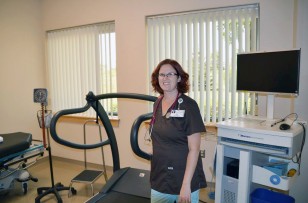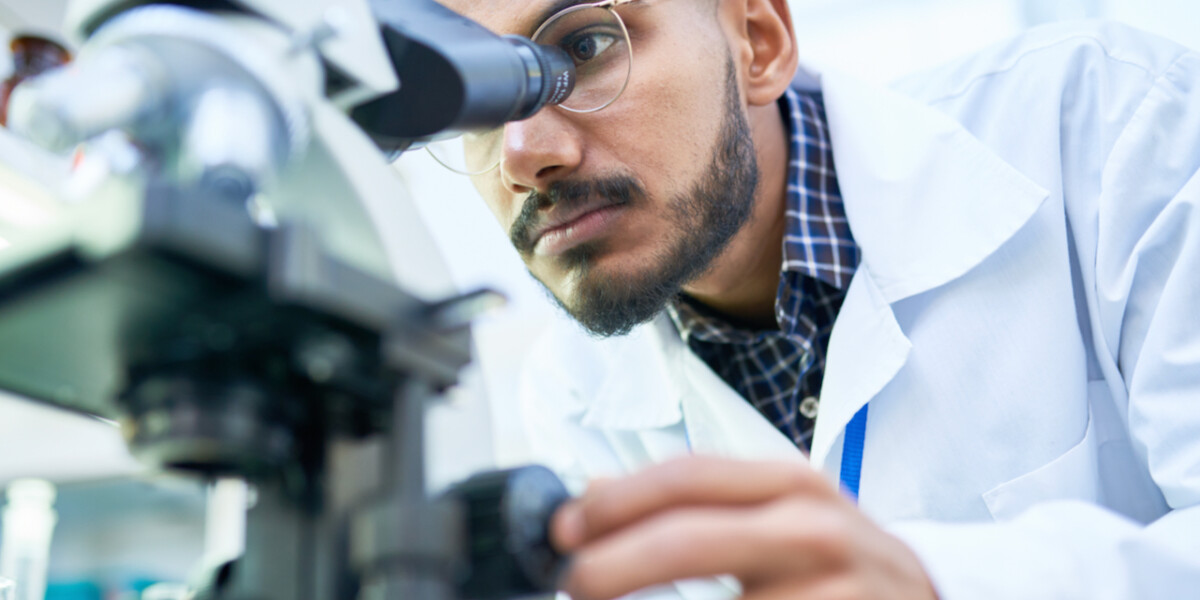UVM’s Medical Science Degree Program gave Kristina Valentine a second chance at getting into medical school.
The McGill University graduate wasn’t accepted to medical school when she first applied two years ago. But this fall, she is heading to the UVM Larner College of Medicine with the goal of working in the primary care field.
We talked to Kristina about her plans for the future and how the Master of Medical Science Degree Program helped make her a desirable candidate for medical school.
After not getting into medical school the first time around, what made you decide to enroll in the Master of Medical Science program
Not getting into medical school last time was definitely tough, so I was able to think about my options and reaffirm that medicine was definitely what I wanted to do. I received feedback on my application and did some soul searching. One of my biggest problems was that I applied very late in the cycle and I did not understand how much that can affect your application. Some of my undergraduate grades may have given some admissions committees pause, too.
Beyond that, I also knew that it would definitely help my medical school application to have more experience in upper-level science courses to show that I could do the work. I also knew that I was much more equipped to excel in difficult science courses at this point in my life. After researching, the UVM Medical Science Degree Program seemed like the perfect fit for me.
What will you be focusing on in medical school?
As of now, my goal is to work in a primary care field—internal medicine or family medicine—and I see myself working in a community health center or other entity where most patients have difficulty accessing health services. I would also like to spend time working in a jail or prison.
You’re interested in serving the justice-involved population. Can you talk about why you are passionate about this particular area?
I became passionate about this particular area through my boss, Dr. Tom Simpatico, who works with justice-involved populations at MHISSION Translational Systems. I have met individuals who were either coming out of incarceration or going into jail diversion, and I heard so much about their often traumatic and heartbreaking pasts. Many of them just weren’t given the tools to succeed and had the cards stacked against them. Though many have done bad things, Dr. Simpatico treats them as people who deserve care. That really sparked a fire in me. I have seen that a lot of times that if individuals are provided with a supportive environment—including support from their physician—they can do much better overall.
Was the UVM Larner College of Medicine Your First Choice?
Yes. I ended up getting five interviews in all, and went to two other interviews besides UVM. I got accepted to one other school and withdrew from the other before getting my decision because I knew I wanted to go to UVM and was accepted early on.
How did the MMS program prepare you for getting into medical school?
It helped in so many ways. For one, I was able to talk to advisors and really get an idea on when I should have my application in and what I should focus on. The biggest thing, however, was probably that I excelled in my classes. I worked really hard, but also had great support from all of my teachers and fellow students. Whenever I didn’t understand something, I would go to office hours and talk it out with my instructor and talk to my other classmates. I now feel like I demonstrated that I can handle the science coursework that is required in medical school and feel much more comfortable because of all of the things I’ve learned.
What were some of the challenges you experienced?
Gross anatomy was really difficult for me at first because I had trouble understanding what I was looking at in the body. But now I won’t have to deal with that learning curve in med school as I’ll be able to pick up where I left off more or less. The same goes for physiology and biochemistry. I have the basics down and will be able to comfortably build on that in medical school.
What was one of the most helpful things you learned from the Master of Medical Science program?
The program gave me a lot of time to think about how to articulate why I want to work in medicine and what got me to this point. Being able to talk to advisors and other students and to think about my journey helped me write my med school application’s secondary essays and personal statements in a way that clearly showed my path and the type of physician I want to become.



